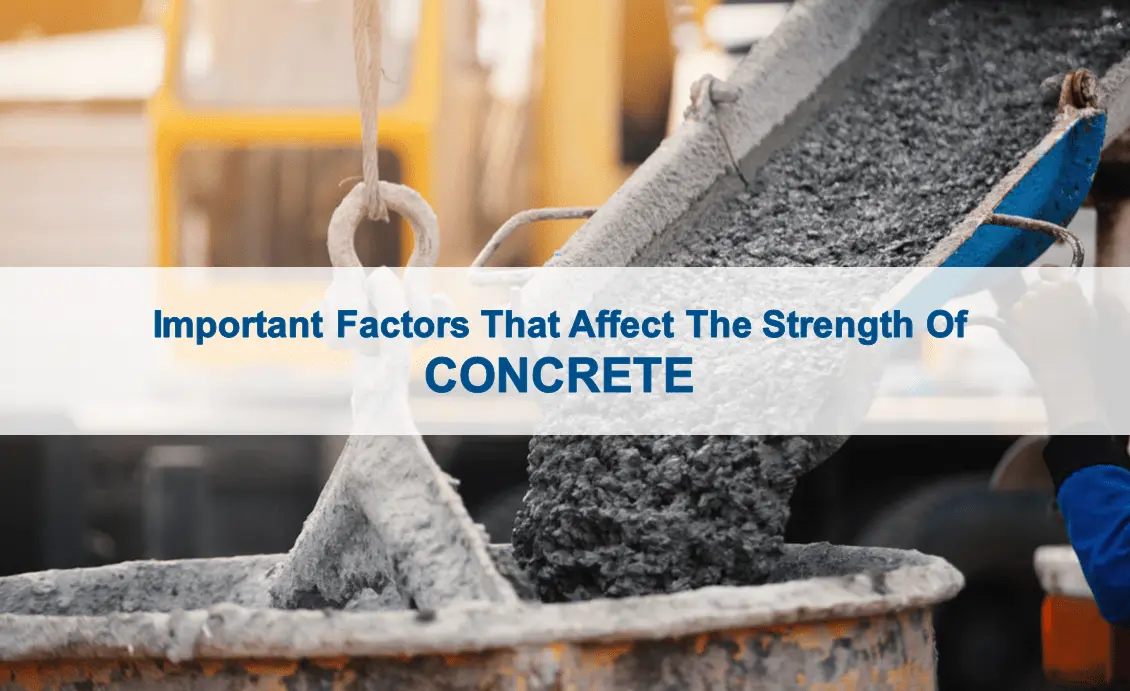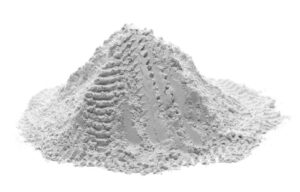Home » Factors Affecting Strength of Concrete? Guide Here!

Any building should priorities longevity and concrete strength throughout construction. The two main parameters that have a considerable impact on the strength and stability of a concrete structure are its compressive and tensile strengths.
While the aggregate and cementitious material, also known as the binder, have an impact on the compressive strength of concrete, the tensile stress of the structure is determined in part by the binding strength of the concrete itself and the reinforced bars. Environmental factors also weaken the structure and lessen concrete’s compressive strength. Since the tensile strength is somewhat dependent on the concrete materials, there is an indirect impact as well.

A profound understanding of concrete is crucial for civil engineers, as it forms the backbone of construction projects. Knowledge of concrete’s properties, composition, and behavior under various conditions empowers engineers to design and execute robust structures. This proficiency ensures the durability, safety, and efficiency of civil engineering endeavors.
Tips to Consider When Selecting an Engineering College
To secure a promising future in civil engineering and elevate our professional standing, obtaining a degree is imperative. Pursuing B.Tech and M.Tech Courses at Lingayas Vidyapeeth, the Top College in Delhi NCR for Civil Engineering, emerges as the optimal choice. This institution ensures top-tier education and comprehensive skill development for a successful career in the field.
From
Dr. Divyashree
Associate Professor & Head
Department of Civil Engineering
RECENT POSTS
CATEGORIES
TAGS
Agriculture Agriculture future AI Architecture artificial intelligence Bachelor of Commerce BA English BA Psychology BTech AIML BTech CSE BTech cybersecurity BTech Engineering Business management career Career-Specific Education career guide career option career scope Civil engineering commerce and management Computer Science Computer science engineering Data science degree education Engineering Engineering students English Literature english program Fashion Design Fashion design course Higher Education Journalism journalism and mass communication law Law career Machine Learning mathematics MBA MBA specialization Mechanical Engineering Pharmacy Psychology Research and Development students
Lingaya's Vidyapeeth (LV) only conducts physical/online verification of any document related to examination on the following official email IDs:
It is important to note that the following email IDs and domains are fraudulent and do not belong to our university:
Please do not respond to or share any personal information with these fraudulent sources.